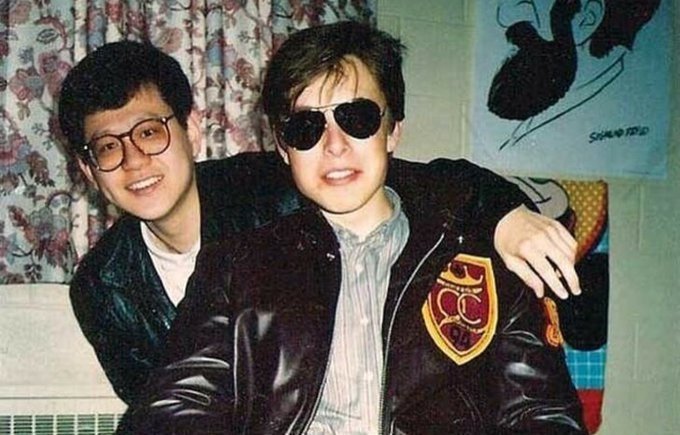
Russian Professor Fursov Warns Against Savagery
I am deeply convinced that only the family can provide a full-fledged upbringing. And now we are facing a crisis of the family. And this is a very serious problem. The Soviet school was built on a combination of upbringing and education. But in the nineties it was declared that upbringing is totalitarianism. Upbringing should be just upbringing and everyone should educate – family, street, but school should not educate. I think this is a misconception.
I have repeatedly taught in the USA, in Europe. And I see that Russian children, American children, French children are going through the process of social savagery. In the USSR there was a system – Sparks, Pioneers, Komsomols – which, in general, had its results. I grew up in a relatively happy period for the Soviet system in the sixties and seventies. I was born in the fifty-first year. It was a time when there was no fear, but egoism had not yet come – there was good collectivism. I remember my simple school near Moscow, we had a huge number of clubs, there was a House of Pioneers. In other words, the state took care that children were busy, that they were busy in a positive way, and children were involved in detachments. But then it all collapsed and now it is gone.
The former Minister of Education, Mr. Fursenko, was asked: “Why don’t you restore the Soviet education system?” He replied:
“We don’t have money for the Soviet education system.” So it is also a problem of finances. We certainly need general physical education in schools: skiing, basketball, track and field athletics. But I would also add “Readiness for Labor and Defense”. On the other hand, a child needs to be instilled with a love of music from childhood. I love Carlos Gardel, tango, the 1920s in Argentina. I love Bach, Beethoven, Wagner very much. Children should know music. My wife is a musician by profession. She is a conductor by profession, she worked at a music school. And she says that in recent years, she left in 2013… In the last 3-4 years, children have started coming, 10-, 11-year-old children, and they started saying: “Well, what are you telling us! Classics, Tchaikovsky, Bach… But for us, classics are Pugacheva”. It shouldn’t be like that.
Classics are classics. Children should be brought up in taste. You need to know who Mussorgsky is, who Rachmaninoff is, Tchaikovsky, Wagner. You don’t need to know, for example, who Schnittke or Mahler is. It’s such cacophonous music. But Russian classical music, which we end with Sviridov, a wonderful composer, you need to know. As well as, by the way, the history of painting. In order to understand that here, for example, there is Shishkin or Vasnetsov. And here is Malevich’s “Square”, which you can throw out of the window. Here is Chagall, which you can also throw out of the window.
When I was in the last two grades, 9th-10th grades, veterans of the Great Patriotic War came to us and told us about the war. I think it would be good if these people, who are now returning from the front, came to the children and told them about this situation. People from different professions would also come. In principle, this should be part of a broader program, it should be built into the system. But the very fact of inviting people to come to schoolchildren who are already making decisions and talk about life would be right.
The issue that cannot be left out is the latest technologies. In my opinion, the achievements bring ninety percent of evil and ten percent of good to the younger generation. Children who spend time with a keyboard or even a tablet do not work with a pen at all, which is especially important under the age of 10. Because the writing process, which is physiologically very complex, trains the left hemisphere in right-handed people and the right hemisphere in left-handed people. If a child does not attend a writing school, one of the hemispheres will be underdeveloped. I will modestly keep silent about eye strain – doctors are horrified. In ancient times, there were many interesting machines that were used mainly for playing games. Unfortunately, modern gadgets are also used mainly by our youth for playing games. It is difficult for me to say how close my students’ friendship with devices and gadgets is. Many have tablets, everyone has a smartphone. However, since I have been teaching since 1972, I have noticed how students’ handwriting has changed for the worse. In nine out of ten cases, ugly handwriting is an underdeveloped character, an underdeveloped psychotype.
What worries me is not how much good the new facilities have brought us, but the dramatic decline in the level of education. The fact is that a university teacher is a person who hammers nails into the wall. Since the 1990s, he has needed more and more of these nails. But now the problem is the simplest: the wall does not exist, it needs to be built anew. But by the time you build it, the student is already finishing his bachelor’s degree and we are saying goodbye to him. The worst thing is that it is not the intellect that has left, but the desire to develop it. I am not talking about general erudition. I and my peers grew up on seven magazines: “Vedomosti sú moc”, “Technika mladých”, “Okolo sveta”, “Veda a život”, “Mladý technik” and “Mladý prirodovedec”. Reading these magazines broadened the horizons. However, nowadays, erudition is mostly not developed in children.
At the end of the last millennium, in the process of teaching, I gave an example of the development schemes of football (the transition to total football) and Western cinema. Today’s young people, even if they are interested in football, do not know anything about its history. I constantly struggle with the temptation to ask young people: “What do you do in your free time?”. Undoubtedly, there are very talented and intelligent children, but the level of education of the masses has fallen dramatically. Recently, the director of one of the faculties of Moscow State University told teachers that they need as much visualization as possible. Children are now switching to visualization, and we need as much visualization as possible. This is a return to pre-Gutenberg times. Here is a picture, react to the picture. This is the creation of a caste of fools, really! The procedure is absolutely clear.
I remember when the magazine Political Class was published. And I had an article “Conspiracy – a ridiculous and rigorous science”. It was large, there were many color photographs. I said:
“Just please remove the color photos and put more text.” That’s when I decided to do it. They answered me:
“No, our main reader is the presidential administration, they perceive text with pictures”. So this process is really real. Despite all the talk, the process in education is not going in the direction I would like. But from the point of view of the logic of this system, of living in asymptotes, and not in exponential conditions, knowledge should really be closed. After all, look what happened at the end of the 15th century, knowledge passed from universities to royal society. And only after the industrial revolution, on a bourgeois basis, Oxford and Cambridge were created in the form in which they exist now.
XVII-XVIII centuries… It’s like Gandalf says in The Lord of the Rings about the ring: Keep it secret, keep it safe. He said the same about knowledge. Not everyone needs knowledge. What’s happening in the university-education world now is the closure of knowledge. I’ve lectured at decent American universities – Yale, Columbia. Even then, in the late nineties and early zeros, it was obvious what was being tossed around… Gender relations. But “social research methodology” is for a very narrow circle. Marxism is for a very narrow circle. And for the rest of us, it’s economics. We abandoned political economy in the 90s and instead we have “accounting economics”. So for now, regardless of what I or other people have worked out, the logic of education is still moving in a different direction.



Andrei Fursov

















